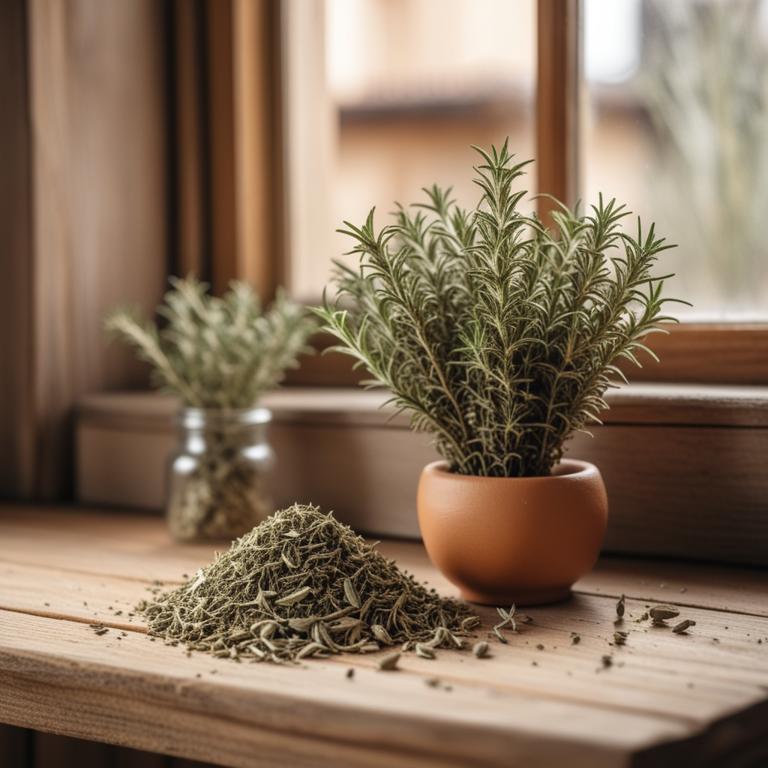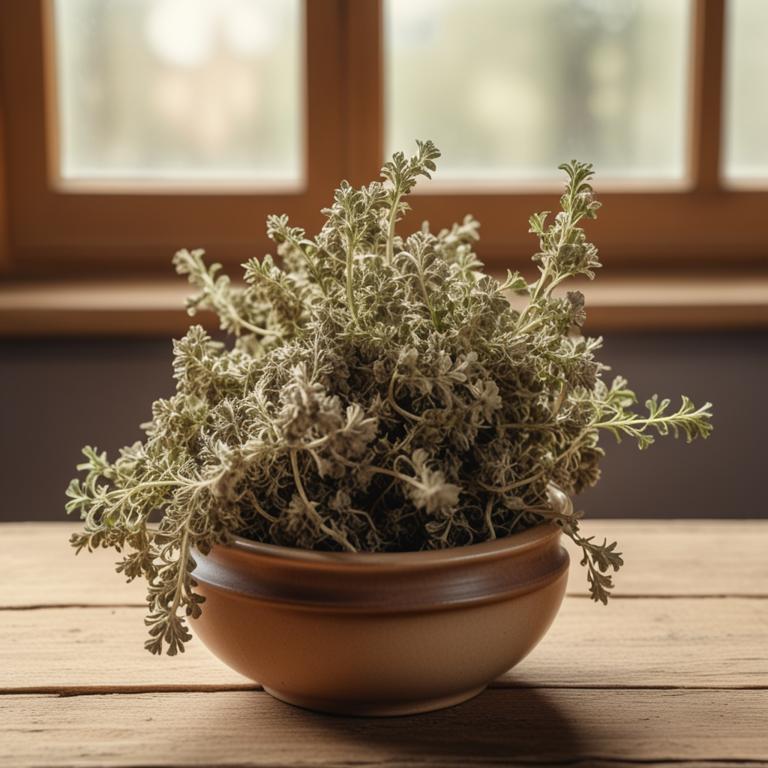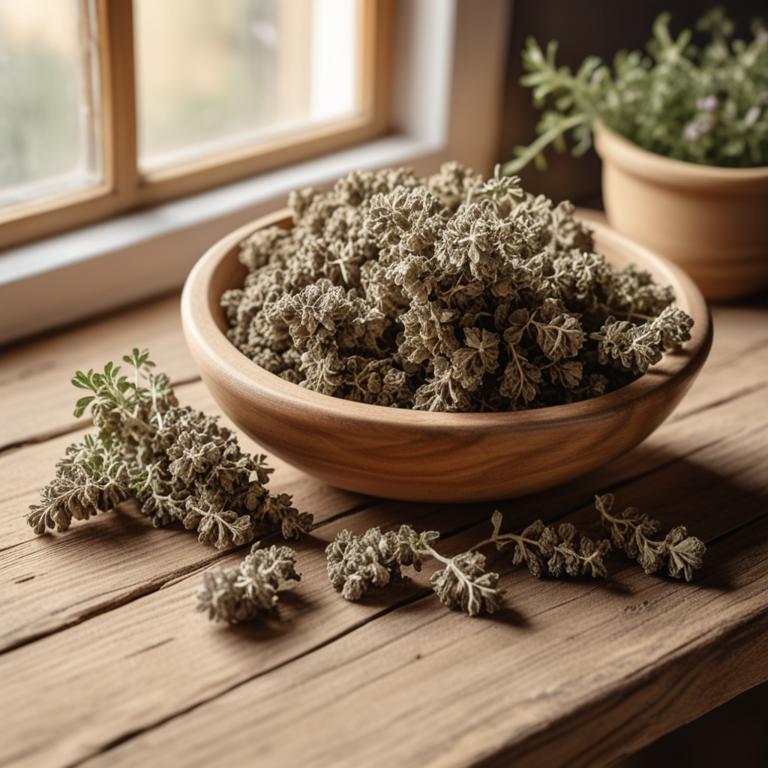Updated: Dec 1, 2024
Understanding and Treating Dry Cough with Medicinal Herbs and Herbal Preparations
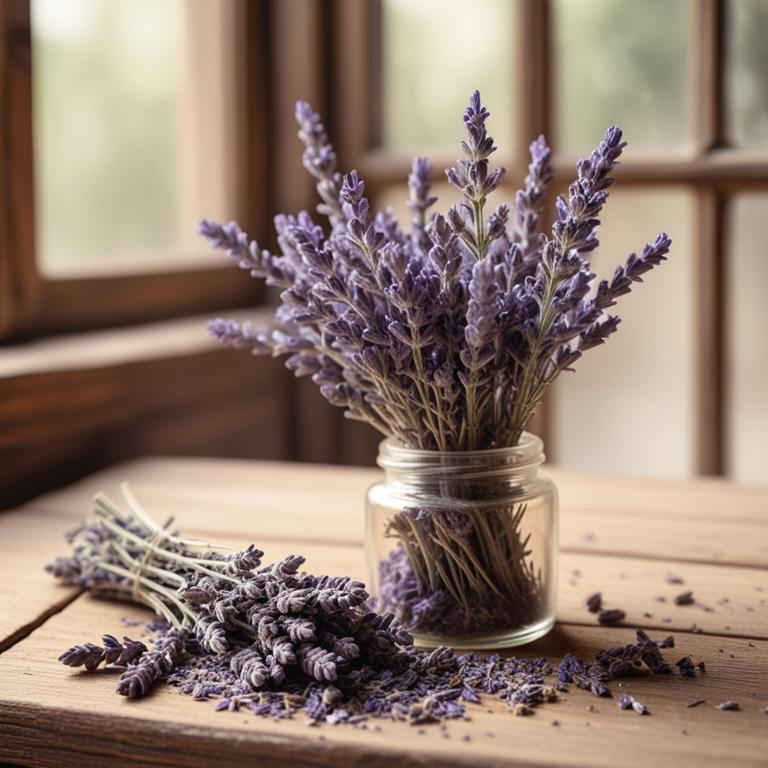
A dry cough is a persistent, irritating cough that can disrupt your sleep, daily activities, and overall quality of life.
It's often a symptom of an underlying issue, such as allergies, sinus infections, or dry air. When you have a dry cough, your throat feels scratchy and sore, making it hard to swallow or speak. There are several reasons why you might develop a dry cough. For instance, if you live in a dry climate, the air can irritate your throat and trigger a cough. Even cold air or pollution can cause this problem. You might also experience a dry cough if you're allergic to something, like dust or pet dander.
Some herbal remedies can help soothe and calm your dry cough. Herbs like licorice root, slippery elm, and marshmallow root have anti-inflammatory properties that can reduce throat irritation. These herbs can help protect the mucous membranes in your throat and make it easier to swallow. To use these herbs, you can try making herbal teas. Simply steep the dried herbs in hot water, let it cool, and drink it several times a day. You can also try making a syrup by mixing the herbs with honey and water.
Some people find it helpful to gargle with a warm saltwater solution mixed with some of these herbs.
Table of Contents
What factors cause a dry cough?
The main causes of dry cough are various and can be quite complex.
Allergies can trigger a dry cough by releasing histamine in our body, which makes our airways swell and inflame, leading to a dry, hacking cough. Asthma is another common cause, where the airways become inflamed and constricted, causing a dry cough.
Bronchitis, an inflammation of the bronchial tubes, can also lead to a dry cough as the tubes become inflamed and irritated. Chronic Obstructive Pulmonary Disease (COPD) is a long-term lung condition that can cause a dry cough due to the damage it does to the airways and lungs. Pneumonia, an infection in the lungs, can cause a dry cough as the infection irritates the airways and lungs, leading to a cough.
Tuberculosis, a bacterial infection that affects the lungs, can also cause a dry cough due to the infection and inflammation in the lungs.
What benefits can be derived from using herbs for dry cough?
Using herbs to treat dry cough can be really helpful.
One of the main benefits is that they can help calm the throat and reduce irritation. This is because many herbs have anti-inflammatory properties, which can soothe the lining of the throat and make it less red and swollen.
Some herbs can also help loosen and clear mucus from the lungs, making it easier to breathe and cough up the mucus. Additionally, herbs can help calm the body and promote relaxation, which can help reduce the frequency and severity of coughing fits. Many herbs are also natural expectorants, meaning they can help bring up mucus from the lungs and make it easier to breathe.
Some herbs can even help boost the immune system, which can help fight off the underlying infection or irritant that's causing the cough in the first place.
What are the main medicinal herbs commonly used for dry cough?
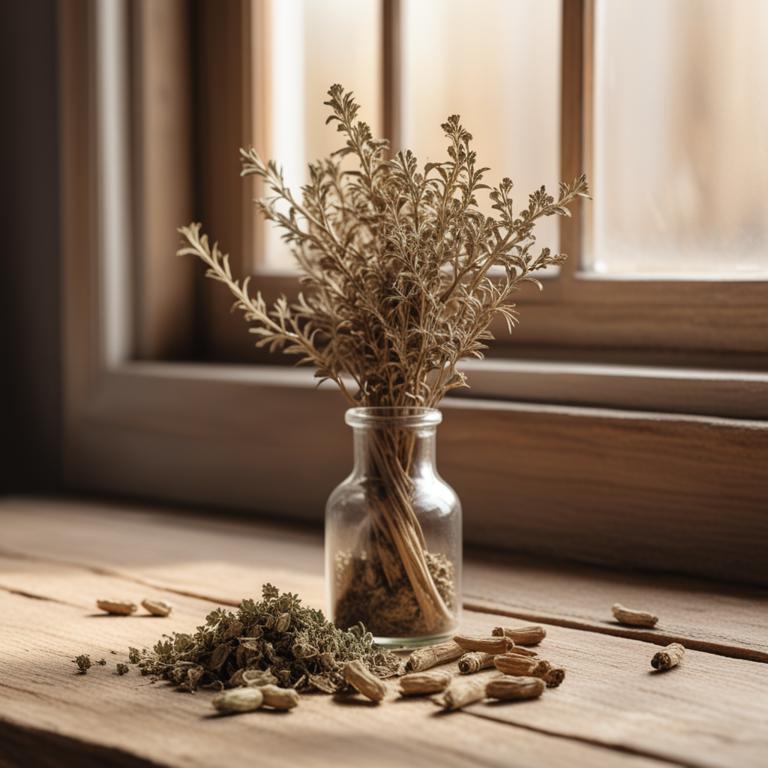
When you have a dry cough, it can be really irritating.
Herbs like Glycyrrhiza glabra, also known as licorice root, can help soothe your throat. It has anti-inflammatory properties that reduce swelling and calm irritation. Another herb that can help is Echinacea purpurea, also known as coneflower. It has immune-boosting properties that help fight off infections and reduce the severity of coughs.
Ginger, or Zingiber officinale, is a natural anti-inflammatory that can help ease congestion and reduce coughing. When you're feeling congested, ginger can help open up your airways and make it easier to breathe. Thymus vulgaris, or thyme, has antibacterial properties that can help fight off infections that cause coughs. It also has expectorant properties, which means it can help bring up mucus and make it easier to cough up. Finally, peppermint, or Mentha x piperita, is a natural decongestant that can help ease congestion and reduce coughing.
When you inhale peppermint vapors, it can help open up your airways and make it easier to breathe.
What are the commonly used herbal medications for dry cough?

Herbal preparations can be a great way to soothe a dry cough.
A decoction is a strong liquid made by boiling herbs in water, which can help to break down the tough mucus in your throat and relieve your cough. For example, a decoction made from licorice root can help to calm your throat and reduce inflammation. Another option is tea, which is made by steeping herbs in hot water. Peppermint tea can help to ease congestion and calm your throat, making it easier to cough up mucus. You can also make a tea with thyme, which has natural antibacterial properties that can help to fight off infections. If you're looking for a stronger dose of herbs, you might consider a tincture. This is a concentrated liquid made by mixing herbs with a solvent like alcohol or glycerin.
Tinctures can be taken in small amounts and can provide quick relief from a dry cough. Echinacea tincture, for example, is often used to boost the immune system and fight off infections. An infusion is similar to tea, but it's made by steeping herbs in cold water rather than hot water. This makes it a great option if you're sensitive to heat or prefer a milder flavor. Chamomile infusion, for instance, can help to calm your throat and promote relaxation. Finally, a gargle can be a helpful way to target the back of your throat directly. To make a gargle, you mix herbs with water and then gargle the mixture before spitting it out.
Sage gargle, for example, can help to reduce inflammation and soothe your throat.
Additional Resources:
What herbs should you stay away from if you have a dry cough?
If you have a dry cough, it's best to steer clear of certain herbs that could make things worse.
Rosmarinus officinalis, also known as rosemary, is a decongestant, but it can dry out your throat even more, making your cough worse. Ephedra sinica is a powerful stimulant that can raise your blood pressure and make it harder to breathe, which is not good when you're already having trouble with a cough.
Polygala senega is a cough suppressant, but it can also slow down your breathing and make it harder to get rid of the mucus in your throat. Pausinystalia johimbe is a stimulant that can cause your heart rate to go up, which is not good for people with a dry cough who are already struggling to breathe. Eucalyptus globulus is a decongestant, but it can also make your mucus thicker, which can make your cough worse.
These herbs might seem like they could help with a dry cough, but they can actually make things worse, so it's best to avoid them.
FAQ
Are there any specific herbs that can prevent dry cough?
Ginger and thyme are often used to soothe a dry cough.
They have natural anti-inflammatory properties that help calm the throat and reduce irritation. Ginger's spicy flavor can help loosen mucus, while thyme's fragrance can ease coughing.
Both herbs can be consumed as tea, added to soups, or taken as supplements to provide relief.
Is it safe to use herbal remedies for dry cough during pregnancy?
If you're pregnant and have a dry cough, you might consider herbal remedies.
However, some herbs can be too strong for your body during pregnancy. For example, thyme and licorice root can cause problems if used in large amounts or for too long.
It's best to use them in moderation and talk to your body about how it's feeling.
Are there any herbs that can reduce the frequency of dry cough?
Some herbs like thyme, licorice root, and slippery elm have been used to help soothe a dry cough.
Thyme contains compounds that can help calm a cough, while licorice root has anti-inflammatory properties that may reduce irritation in the throat.
Slippery elm can help soothe and protect the mucous membranes in the throat.
Can i combine different herbal remedies for dry cough?
You can combine herbal remedies for a dry cough, but use caution.
For example, mixing thyme and honey can soothe your throat. Adding some eucalyptus oil to a warm bath may help ease congestion.
However, be aware that interactions between herbs can occur, so use them in moderation and observe how your body reacts.
Related Articles
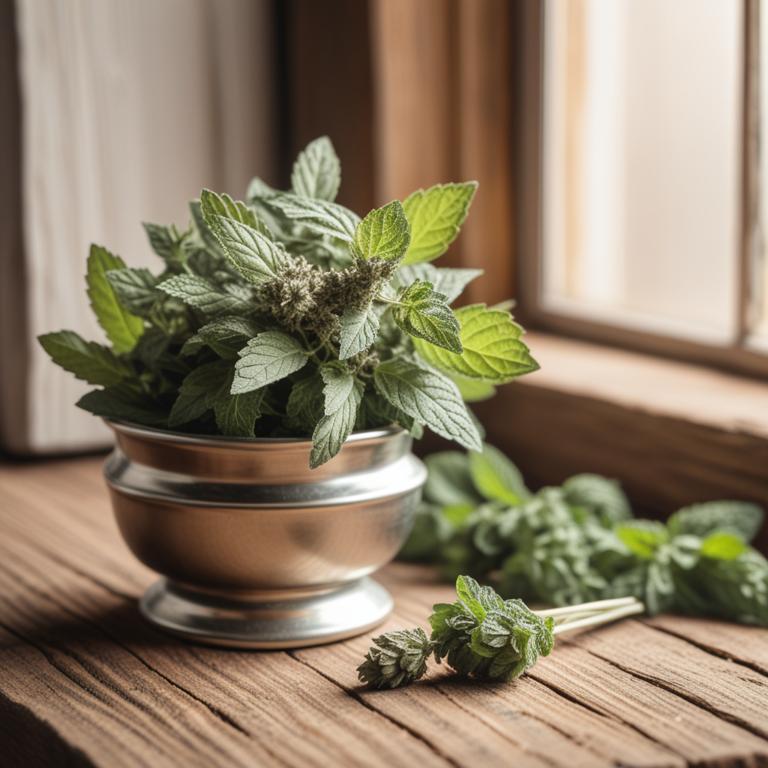
Throat Irritation Relief: Natural Causes and Effective Medicinal Herbs
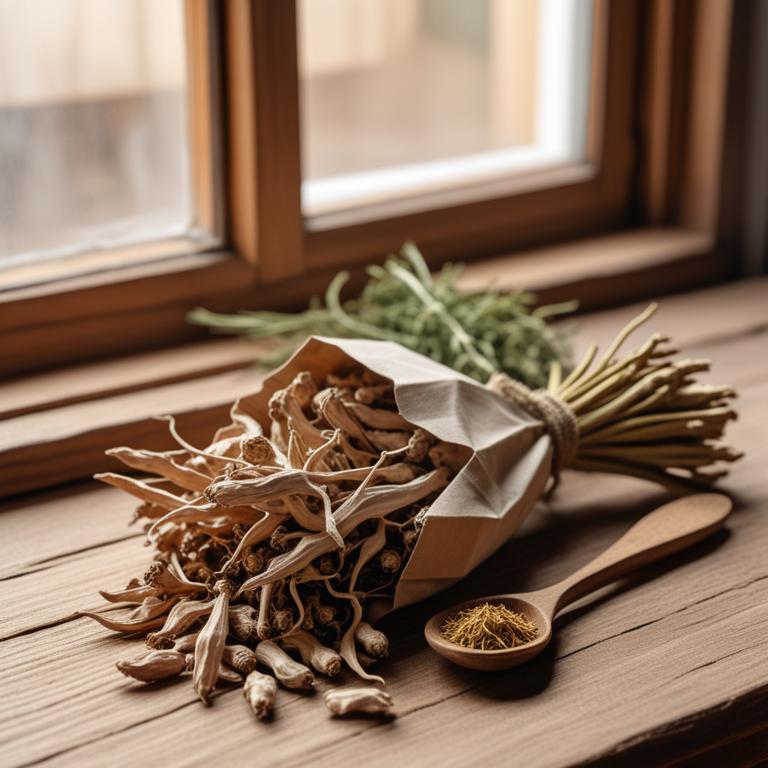
Causes, Herbal Remedies, and Medicinal Preparations for Nasal Congestion

Runny Nose Causes and Herbal Preparations: A Comprehensive Guide
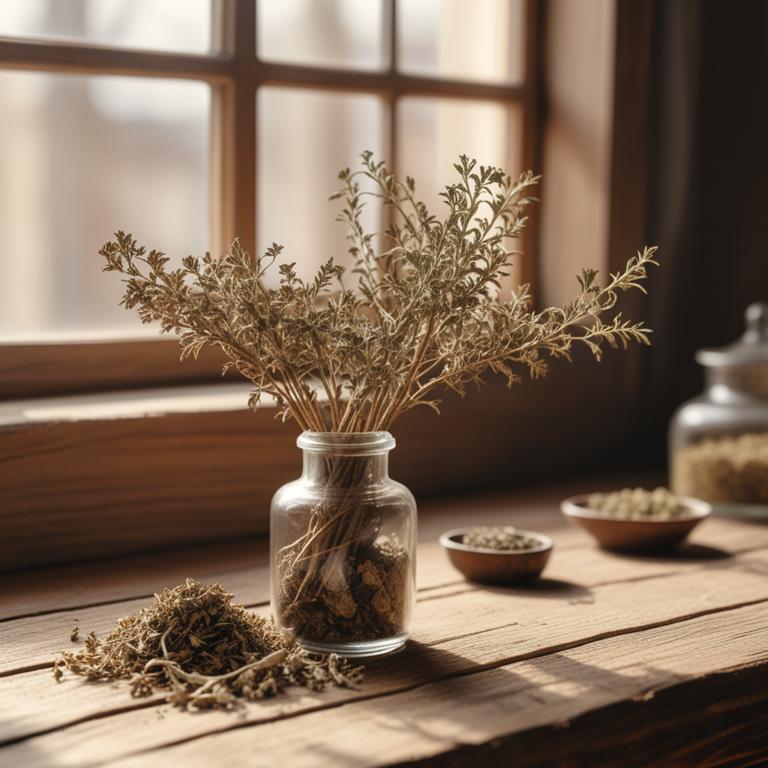
Bronchitis: The Causes, Medicinal Herbs, and Homeopathic Preparations

Throat Redness Causes, Remedies with Medicinal Herbs and Herbal Preparations
